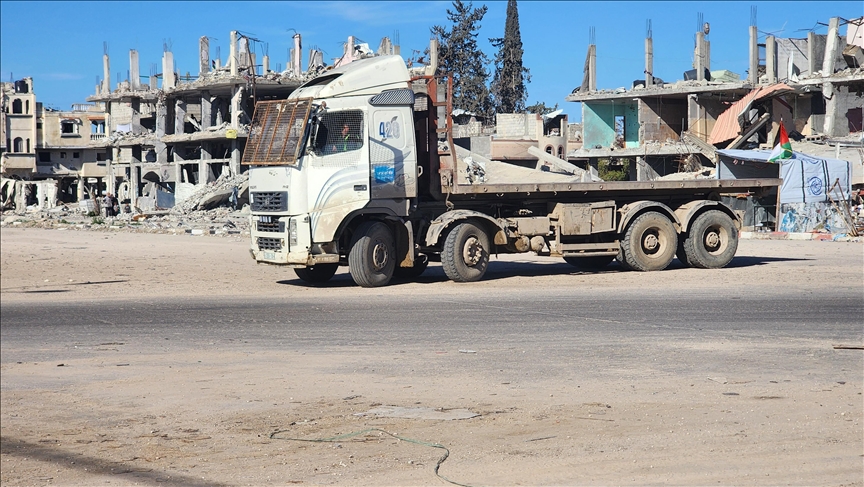UN relief chief calls Israel's aid delivery plan in Gaza 'cynical sideshow'
'Israel is deliberately and unashamedly imposing inhumane conditions on civilians in the Occupied Palestinian Territory,' says Tom Fletcher

HAMILTON, Canada
The UN relief chief condemned Israel's restrictions on humanitarian aid to the Gaza Strip, warning Tuesday that the aid delivery mechanism is a "cynical sideshow" designed to distract from a campaign of displacement and suffering.
"Israel is deliberately and unashamedly imposing inhumane conditions on civilians in the Occupied Palestinian Territory," Tom Fletcher, the United Nations Under-Secretary-General for Humanitarian Affairs and Emergency Relief Coordinator, told the UN Security Council.
Stressing that 70% of the enclave is either within Israeli militarized zones or under displacement orders, Fletcher said: "I can tell you from having visited what's left of Gaza's medical system that death on this scale has a sound and a smell that does not leave you."
He urged council members to think about how history will judge their actions.
"Before starting, I ask you to reflect for a moment on what action we will tell future generations we each took to stop the 21st-century atrocity to which we bear daily witness in Gaza," he said.
He described Israel's reported aid delivery control plan for Gazans via private US security contractors as one that "practically excludes" the most vulnerable, including "people with disabilities, women, children, the elderly and the wounded."
"It makes starvation a bargaining chip," he said. "It is a cynical sideshow. A deliberate distraction. A fig leaf for further violence and displacement."
He asked council members to support humanitarians in their work, saying "the UN and our partners are desperate to resume humanitarian aid at scale across Gaza in line with the fundamental principles of humanity, impartiality, independence and neutrality."
Fletcher also emphasized the UN's readiness to resume large-scale humanitarian operations.
"We have rigorous mechanisms to ensure our aid gets to civilians, not Hamas," he said.
"But Israel denies us access, placing their objective of depopulating Gaza before the lives of civilians. It is bad enough that the blockade continues. How do you react when Israeli ministers boast about it?" he said.
He also condemned the increasing Israeli violence in the occupied West Bank, calling it "the worst in decades."
"Settlements are expanding, and settler violence continues at alarming levels, sometimes with the support of Israeli forces," he said.
He urged the council to "act now, decisively, to prevent genocide and to ensure respect for international humanitarian law."
"This council must prevail. Demand this ends. Stop arming it. Insist on accountability," he said.
Angelica Jacome, director of the Food and Agriculture Organization (FAO) liaison office in New York, also highlighted the "very difficult" situation in Gaza, saying that "millions of people face acute food insecurity and the risk of famine is imminent."
Essential items for people's survival are depleted or will be exhausted in the coming weeks, she said, referring to the Integrated Food Security Phase Classification System (IPC), which revealed a growing risk of famine in the Gaza Strip.
Jacome pledged her willingness to assist with hunger prevention.
"People in Gaza are not only experiencing a lack of food, but they are going through a profound breakdown of health, livelihood and social structures, leaving entire communities in a state of desperation, devastation and death," she said.








